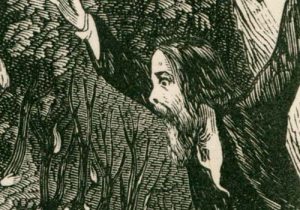This region had its share of that strange revival of religion which, in the beginning of the century, overspread all the West. It was wonderful in its character and results.
Old John Patton, a Ruling Elder of Jonesborough, in my day told me many things of that work of the Spirit and of the devil.
He told me that he had often seen five hundred men start off at a run through the woods—day as well as night—like so many red deer. Yet nobody ever got hurt. Then, men stood and jerked themselves most violently, holding to saplings trimmed up for this use. Then many would fall insensible on the ground and remain so for some time. He said he had seen Dr. S. Doak—the pioneer of Presbyterianism in Tennessee—while in the pulpit and preaching against these excitements, jump up and take his yellow wig from his head and throw it over the congregation! This sympathetic influence of the imagination over the nervous system has its many forms. Religious excitements, such as the Christian conditions, have only their places among what we find in other religions. In themselves they may be, as said, in the midst of the presence of the Holy Ghost or Satan.
Source
“The Autobiography of Reverend Frederick Augustus Ross, D.D., in Letters to a Lady of Knoxville, Tennessee (Mrs. Juliet Park White),” 1862–1863, 135–136, typescript, Virginia Historical Society, Richmond.
